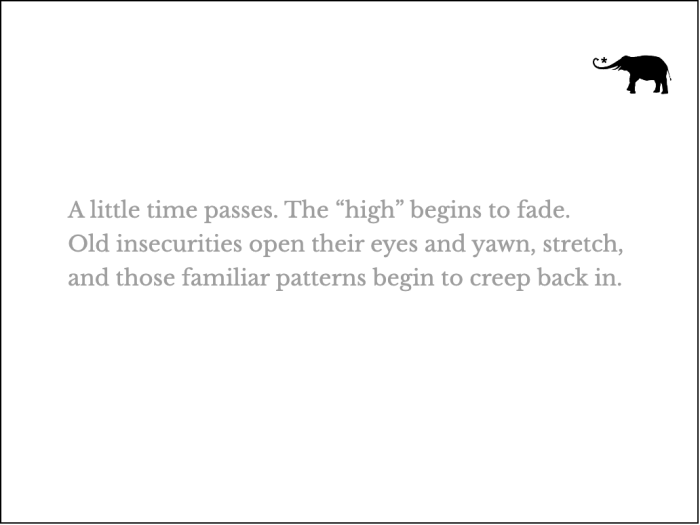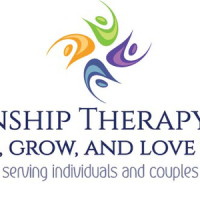There’s nothing quite like the early stages of a new relationship. Colors appear more vibrant. You’re full of optimism, your insides feel buoyant as though they’re dancing like bubbles in champagne. It’s an incredibly intoxicating experience; you feel so very alive!
And then…
A little time passes. The “high” begins to fade.
Old insecurities open their eyes and yawn, stretch, and those familiar patterns begin to creep back in.
You get into an argument over something dumb – maybe it’s a picture of an ex that’s still on their social media profile that they rarely look at, or something else that makes your face red and your insides hot and tight.
Perhaps a small part of you wonders if you’re overreacting, but the intensity of the emotion you’re feeling quickly overrides the thought, assuring you that no. You’re right. What they’re doing is totally respectful – out of line – and may be a sign: they don’t care about you.
Contributing Factors
People who were cheated on by past partners or have other trust issues, and people who have a history of abuse can have an especially hard time. It seems almost impossible to not let the transgressions of their past partners influence how they behave with their current one.
And it’s not just patterns from romantic relationships that affect current ones, either.
Relationships with primary caregivers and other influential people from childhood all have the capacity to influence and meddle with current relationships. A new relationship is a clean slate, the last thing we want to do is drag in things from the past. Easier said than done, but it’s still very possible.
So. What is there to do? How can you move forward without being weighed down by the baggage of the past? One of the best ways is through therapy. Along with therapy, here are some quick tips and ideas that can help.
- Be Curious
Your past relationships: What happened?
Be honest about your role. Perhaps you never shared your insecurity, and that manifested as you being suspicious and accusatory. Maybe you never shared how you really felt.
Maybe you never even recognized how you felt, because years of people-pleasing left you totally disconnected from self.
The goal here isn’t to blame yourself or beat yourself up, it’s to discover and learn from past behaviors that may have not been congruent with what you actually wanted.
- Bravely Address Core Wounds
Falling in love can feel like a mess of contradictions. You want to give your new partner your all, but you also remember how the last breakup tore you to shreds. How it took all your energy and joy, and how difficult it was to move past.
The fear of getting hurt is very real, and causes people (especially those who experienced heartbreak) to overreact at the slightest indication, no matter how seemingly far-fetched, that they’re no longer number one in their partner’s eyes.
One of the best ways to amend this is to attend to these core wounds. The crux of how this is done is by establishing a genuine loving relationship with yourself. Easier said than done, but it’s possible. Therapy is an excellent way to begin this process. Something empowering and powerful happens when you’re able to love yourself – yes, even the parts you want to hide from.
- Know What a Healthy Relationship Looks Like
Many people (unfortunately) don’t know what a good relationship is: It’s a union where you can freely be you, express your whole self – even the shameful parts – and be loved anyway. It’s spending time growing and learning together. Supporting one another. Working through difficulties and challenges with kindness and compassion. It involves being able to examine and explain why something hurt you, without things escalating.
- Communicate
Explain how you really feel. Many people get triggered by one thing, and pretend it’s something else that’s bothering them – or pretend it’s nothing – because they’re embarrassed or ashamed of why they’re feeling insecure.
Your feelings are valid. When you skirt around them and never address them, you give them free rein to influence your relationship, and add an unintentional element of secrecy and inauthenticity.
- Know Your Triggers
It’s important to understand your triggers and how you react to stress. If you’re starting to feel overwhelmed, communicate that as soon as you recognize the feelings, instead of keeping everything bottled up until it explodes.
If you need support, help, a moment to process – share that with your partner.
If your partner does something that bothers you, take a moment to step back and assess the context: how can you process and communicate your experience in a healthy way?
There’s no doubt about it, navigating a relationship can be a confusing experience, marked by powerful emotions.
If you feel like your past relationship experience is putting a damper on your current one, couples counseling can help. For Northern California residents who are interested in therapy, give us a call or text. We offer counseling in Roseville and Fair Oaks, and would love to hear from you and share how we can help.
Nancy Ryan, LMFT – www.therelationshiptherapycenter.com











Read 0 comments and reply